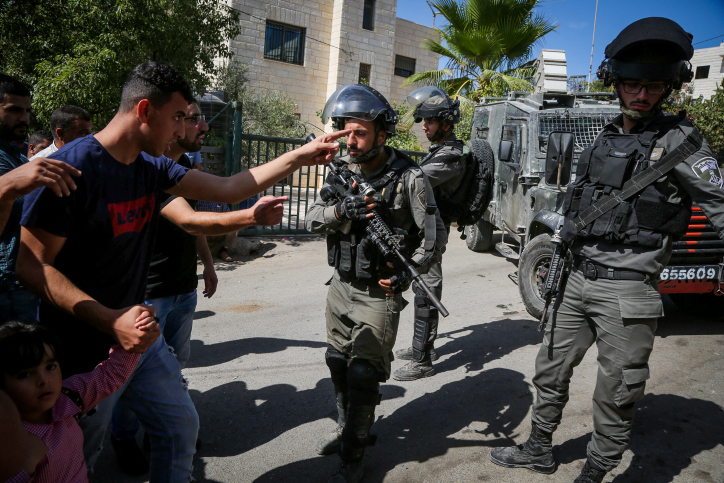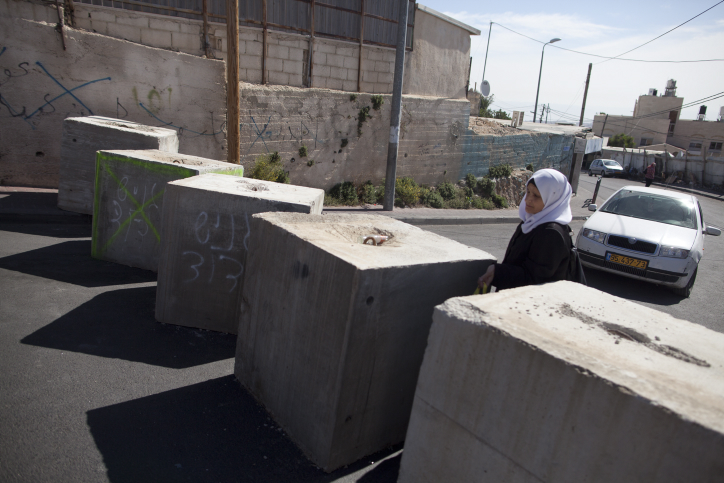Following a violent Palestinian attack on a West Bank settlement, Haaretz’s military correspondent claims Israel has, until now, refrained from collective punishment against the Palestinians. He’s wrong.

Following Tuesday’s lethal attack by a Palestinian worker on security forces in the West Bank settlement of Har Adar, Haaretz’s military correspondent Amos Harel published an article in which he lays out the disagreement between the government and the IDF over what measures should be taken to reduce the number of such attacks and whether steps should include the collective punishment of Palestinians. As if Israel has never yet tried collective punishment.
Harel continues by explaining that the security establishment argues that collective punishment only increases motivation for carrying out attacks, and therefore has refrained from carrying out steps that punish the Palestinian population and a wholesale revoking of their work permits (since the wave of violence began in 2015, only one Palestinian involved in violence has had a work permit).
Yet now, after a second permit carrying Palestinian has carried out an attack, Harel hints that it is possible the time has come to rethink the main tool for collective punishment — preventing Palestinian workers from entering Israel. Or in harsher terms: another step toward separation, closure, and isolation. Despite what Harel claims, this is certainly not a new concept for Israel.
Harel further argues that there is a theoretical disagreement on the issue of collective punishment, and that until now, it has been Israel’s relatively composed response that has prevented an escalation since 2015. One must wonder whether Harel reads the newspaper he writes for. After all, around this time last year Haaretz published an editorial against collective punishment in East Jerusalem.

Harel seems to forget the millions who for years have been under siege in Gaza and who are subject to the whims of the Israeli government, whether it is a war with thousands of casualties, disconnecting the Strip from electricity, forbidding the entry of electrical equipment or the exit of the sick. Don’t these count as collective punishment?
Harel further ignores the fact that for decades Palestinians in the West Bank have been living under a permit regime in which Israel decides who will be able to travel where and when. He ignores the mass arrests; the checkpoints and closures; and the cinder blocks and and makeshift checkpoints in East Jerusalem and the West Bank — perhaps because all of this has become routine for non-Jews.
And let’s not forget the fact that following every act of violence by a Palestinian, the army will immediately put his village or town under closure. His family members will have their permits revoked, their homes will be demolished, and their residency rights will be subject to revocation.
One cannot suppress a popular uprising for dozens of years and maintain an occupation for 50 years without collective punishment. Although the army has been playing the role of the “responsible adult” over the past few years — as the sole voice tempering the nationalistic bombast of the political echelons — but in reality the IDF remains the central body that maintains the occupation. There is no doubt that the decision to revoke work permits from tens of thousands of Palestinians will be a drastic step. But like we have learned for 50 years, Israel has many sticks and very few carrots up its sleeve, and it does not hesitate to use them.
Yael Marom is Just Vision’s public engagement manager in Israel and a co-editor of Local Call, where this article was originally published in Hebrew.
